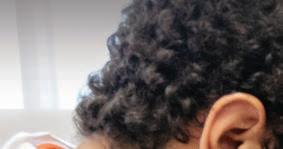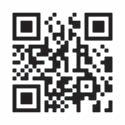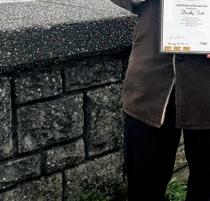




























































Dr. Jonathan Choy is studying the gut microbiota to find ways to increase survival rates.
We don’t yet know how to specifically block the immune system from reacting to heart transplants. Knowing this will permit the development of therapies that permanently prevent rejection.
Dr. Jonathan Choy Heart & Stroke researcher
Canada’s first heart transplant took place in Montreal in 1968, giving people hope for an extended life. While revolutionary, the procedure had its shortcomings: After a transplant, it’s common for the immune system to see the new heart as a foreign object and attack it – days, months, or years after surgery.
Today, anti-rejection research has led to a world-wide survival rate of 90% one year after surgery, but grafts continue to be lost at unacceptable rates after that, and anti-rejection drugs have detrimental side e ects.
That’s where Dr. Jonathan Choy, professor of molecular biology and biochemistry at Simon Fraser University, comes in: “Our interest is in understanding how the immune system rejects the new heart in order to find ways to prevent that without suppressing the whole immune system.”







His team is experimenting with the gut microbiota – the community of bacteria, viruses and fungi that inhabit our intestinal tract. This community a ects many bodily functions, including immune activation: “Our hope is that if we understand how the di erences in the gut microbiota a ect how heart transplants are rejected, the gut microbiota can be modified.”
Two ways to modify the gut microbiota are through probiotics, bacterial species given orally, and prebiotics, dietary components that can modify the function of existing bacteria in the gut microbiota. “We’ll examine how the gut microbiota controls immune cells that cause heart transplant rejection and whether this microbial community can be modified with probiotics and prebiotics to reduce immune responses that cause rejection.”
To the families he hopes to help, he says, “We’re working on it. As hard and fast as we can.”
Your microbiome thrives with a diet that’s high in fibre, which comes from vegetables, fruit, legumes, whole grains, nuts and seeds. Treat your family to this salmon arugula salad with blueberry pomegranate vinaigrette! Visit heartandstroke.ca/salmonarugulasalad
If you’ve ever felt butterflies in your stomach or found an emotional event to be “gut-wrenching,” you’ve experienced the interplay between your gut and your brain, which form a two-way connection called the gut-brain axis. This system plays an important role in whole body health, including heart health. Visit heartandstroke.ca/gutbrainhealth
Learn more!

Get recipe!


Dr. Emilio Alarcón is developing breakthrough therapies to repair damaged hearts and keep them beating
Dr. Emilio Alarcón, Heart & Stroke researcher “ ”
Training the next generation of scientists and coming up with new solutions in the area of repairing the heart – it’s all made possible by Heart & Stroke funding.
“After a heart attack, the heart is most likely to be left with damage,” says Dr. Emilio Alarcón, principal investigator at the University of Ottawa Heart Institute and associate professor at the University of Ottawa. “The body is a living organism that works hard to heal us after an injury. That’s precious energy we want to protect.”
Dr. Alarcón and his team have been working tirelessly on therapeutic approaches to support this healing and improve heart function. Over the past several years, they have developed biodegradable materials delivered to the heart muscle, to help restore its capacity to beat.
This year, another brilliant therapeutic approach has emerged: an engineered peptide-based material that has the power to safely deliver cargo molecules to the heart.

















Describing his team’s work as being like science fiction, Dr. Alarcón explains how this new generation of synthesized materials was engineered in a lab but inspired by nature: “These materials, smaller than a human cell, mimic what’s naturally found in the heart, like collagen (a protein that makes up most of the heart), to restore and regenerate. This goes beyond the heart beating mechanically – it heals the heart’s natural function.”
Humble about his accomplishments, Dr. Alarcón speaks with pride about his team: “We don’t only teach science, we care for people. I see compassion and understanding as the most important things within my team. Without that human aspect, we have nothing.”











When you’re sitting at your desk or on the couch, the idea of exercising, while good, may not seem likely. But what if you could “snack” on exercise throughout the day and improve your health and fitness? Breaking up your day with little bites of activity – just like treating yourself to a healthy snack – is becoming a popular way to keep healthy! Visit heartandstroke.ca/exercisesnacking Exercise
Get started!

“When you are charitable, you help make the world a better place for everyone.”
The first thing you notice when meeting Ken Scott is his welcoming smile and gentle demeanor. At 77, the Saanich British Columbia native takes living a heart-healthy lifestyle seriously – with good reason.
His father Ralph was just 70 when he had a heart attack. Thankfully, he had a full recovery, living to age 97. His heart attack inspired Ken’s mom, Dorothy, to become a Heart & Stroke canvasser. For nearly a decade, Ken drove her on her fundraising routes through central Saanich. Dorothy sadly passed at 92, and today, Ken proudly displays the plaque she received for outstanding service. He knows how important it is to make a di erence in the lives of the 3.5 million Canadians a ected by heart disease, stroke and vascular cognitive impairment. In the spirit of giving, Ken has created his own legacy, with a gift in his Will dedicated to Heart & Stroke.
Thank you, Ken, for your big heart and for following in your mother’s footsteps! Your legacy will continue to help beat heart disease and stroke, giving families strength and hope today and tomorrow.




di erence!


